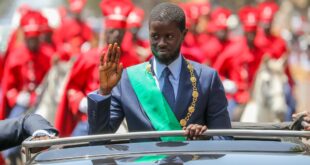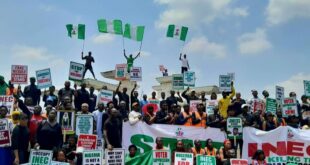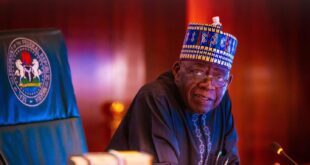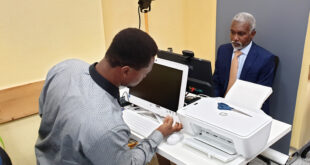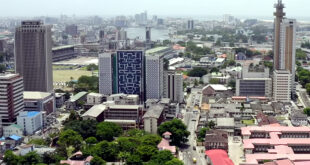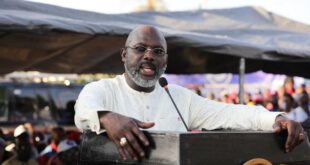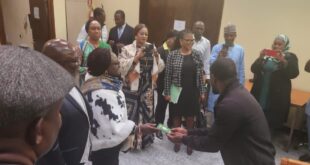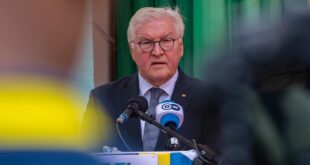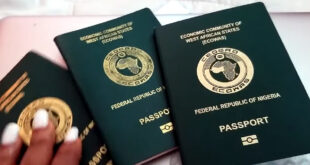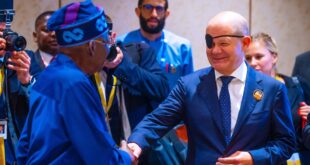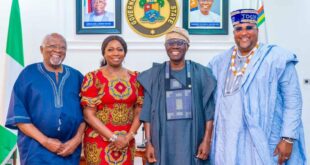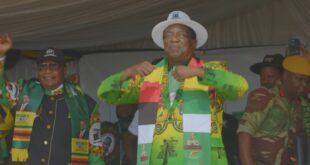Democratic Republic of Congo’s electoral commission on Thursday declared opposition leader Felix Tshisekedi the surprise winner of last month’s chaotic presidential election.
In a pre-dawn announcement, the election commission named Tshisekedi, son of the country’s late veteran opposition leader (Etienne Tshisekedi), as provisional winner of the bitterly-contested December 30 vote.
Election chief Corneille Nangaa declared Tshisekedi the winner with 38.57 percent of the vote, just ahead of his opposition rival Martin Fayulu with 34.8 percent. Emmanuel Ramazani Shadary of the ruling party of President Joseph Kabila came third with 23.8 percent.
Tshisekedi’s apparent victory was greeted by celebrations at the headquarters of the Union for Democracy and Social Progress (UDPS), the country’s oldest and largest opposition party which was founded by his late father, Etienne.
The 55-year-old immediately pledged to work closely with current incumbent Joseph Kabila. “Today we should no longer see him as an adversary, but rather as a partner for democratic change in our country,” he told supporters.
But the result was immediately denounced by his opposition rival Fayulu, the runner up, who slammed the announcement as “an electoral coup”.
French Foreign Minister Jean-Yves Le Drian said the declared outcome was “not consistent” with the results, saying that Fayulu appeared to have won.
With the vast central African country increasingly on edge over the long-delayed vote to replace Kabila, who has ruled the country with an iron fist since 2001, the United Nations warned against any resort to violence.
“The Secretary-General calls on all stakeholders to refrain from violence and to channel any eventual electoral disputes through the established institutional mechanisms,” spokesman Stephane Dujarric said late Wednesday.
Kabila had been due to step down two years ago, but managed to cling on to power, sparking an escalating political crisis marked by widespread protests that were brutally repressed, leaving dozens of people dead.
The vote finally took place at the end of December, pitting Kabila’s handpicked successor Emmanuel Ramazani Shadary against Tshisekedi and Fayulu, a fiery orator who emerged from relative obscurity to take a front seat in the race.
The final result will be announced on 15 January and if Kabila hands over to Tshisekedi, it would be the first peaceful transfer of power in the country since independence in 1960.
The last two elections in 2006 and 2011, both of which were won by Kabila, were marred by bloodshed, and many fear a repeat of the violence if there is any sense the result has been fixed.
In 2006, Kabila defeated former warlord Jean-Pierre Bemba in a violence-tainted poll, and five years later, he was re-elected in another vote blighted by bloodshed, chaotic organisation and alleged irregularities.
AFP
 THE AFRICAN COURIER. Reporting Africa and its Diaspora! The African Courier is an international magazine published in Germany to report on Africa and the Diaspora African experience. The first issue of the bimonthly magazine appeared on the newsstands on 15 February 1998. The African Courier is a communication forum for European-African political, economic and cultural exchanges, and a voice for Africa in Europe.
THE AFRICAN COURIER. Reporting Africa and its Diaspora! The African Courier is an international magazine published in Germany to report on Africa and the Diaspora African experience. The first issue of the bimonthly magazine appeared on the newsstands on 15 February 1998. The African Courier is a communication forum for European-African political, economic and cultural exchanges, and a voice for Africa in Europe.



